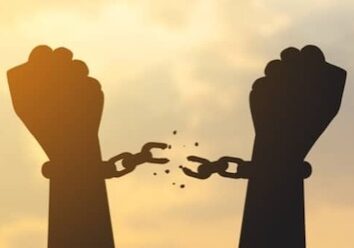Forgiveness & Trust
Is it necessary to trust again after forgiveness has been given? We know that forgiveness of others is necessary so we may maintain forgiveness in our own lives, but does that mean we have to trust the one we have forgiven again?
Several years ago, I asked an older minister this question. His reply was, “Of course not.” He gave me this analogy, “You can forgive someone for stealing your cash when you leave it in the open. If the pattern continues, at some point, you stop leaving your cash where it is accessible to the person helping themselves to it. That doesn’t mean you don’t forgive them. It does mean you don’t trust them anymore.”
These were wise words.
Struggling to Forgive
Sometimes individuals struggle with forgiveness because they believe they must trust the person they need to forgive again. That is not the case, and it is not always wise to trust again.
Forgiveness must be given for our benefit. Reconciliation is worthwhile to seek after. However, when trust has been broken, the rebuilding of that trust must be sought after by the one that broke the trust in the first place. That only sometimes happens.
Dr. Henry Cloud published a book in March of 2023 entitled, “Trust.” It is an excellent source of information on the subject. I highly recommend it.
There is no offense worth losing our soul for. So, forgive liberally. Forgive whether it is wanted or not. But be careful with trust. Trust should not be given liberally. Wisdom should be used in deciding whom we will trust. If we were more careful about whom we trusted, there would be fewer instances where forgiveness would need to be given. Selah.
God is certainly trustworthy. It is suitable for us to strive to be trustworthy also. To be trusted, we must learn how to trust, and the best place to start is trusting the Lord (Proverbs 3:5-6).
You might also like these articles...
I Love You Too!
I Love You Too! Within most relationships, one person is the primary initiator, and the other is the responder. For example, in the area of affection, one spouse says, “I love you,” and the other spouse responds by saying, “I love you, too.” The initiating spouse will reach out their hand first, and the other…
Christian Freedom
Christian Freedom Christian freedom is a key theme in our Christian faith, but it is often misunderstood. From a biblical perspective, true freedom isn’t about having no limits or doing whatever we want. Instead, it is the ability to live as God designed—free from the bondage of sin, shame, fear, and death. In John 8:36,…
Look Up!
A Biblical Response to Depression and Anxiety “I lift up my eyes to the mountains—where does my help come from? My help comes from the Lord, the Maker of heaven and earth” (Psalm 121:2). We all go through seasons in life where we face anxiety, depression, or deep discouragement. When this happens, our natural response…




![1470833578[1] Look Up!](https://dsministries.com/wp-content/uploads/bb-plugin/cache/14708335781-landscape-fc2b2c31ba258a5ef040dc7a9fc2cda7-.jpg)